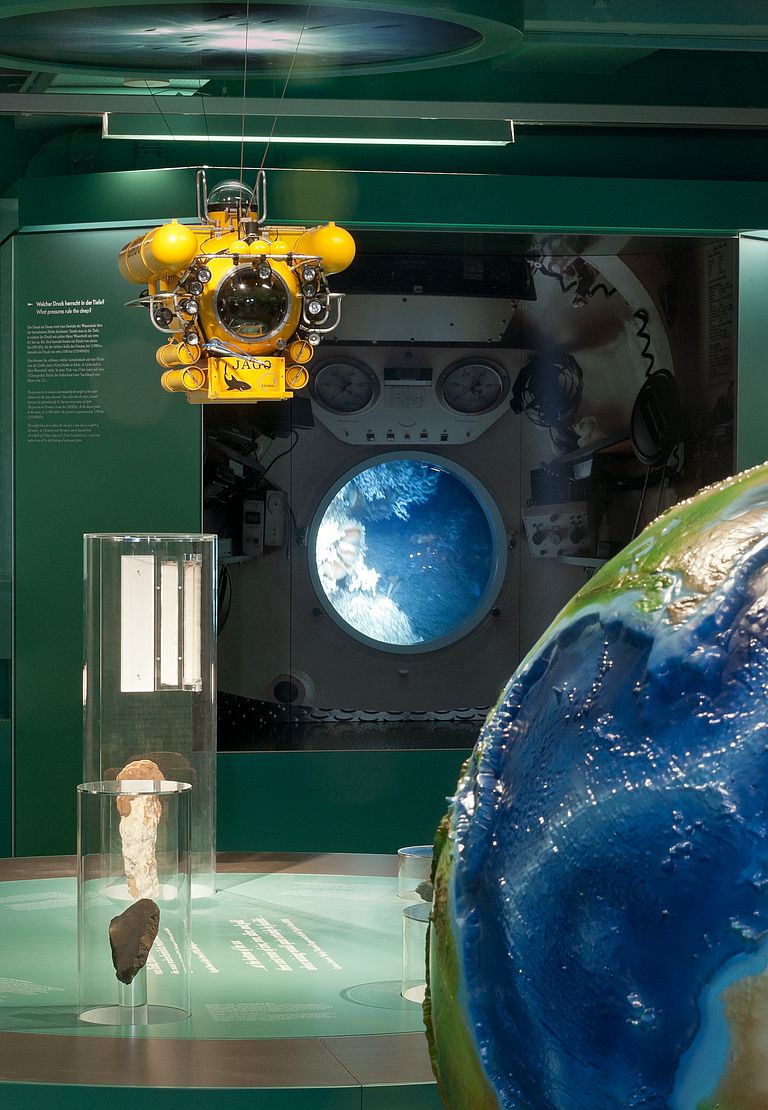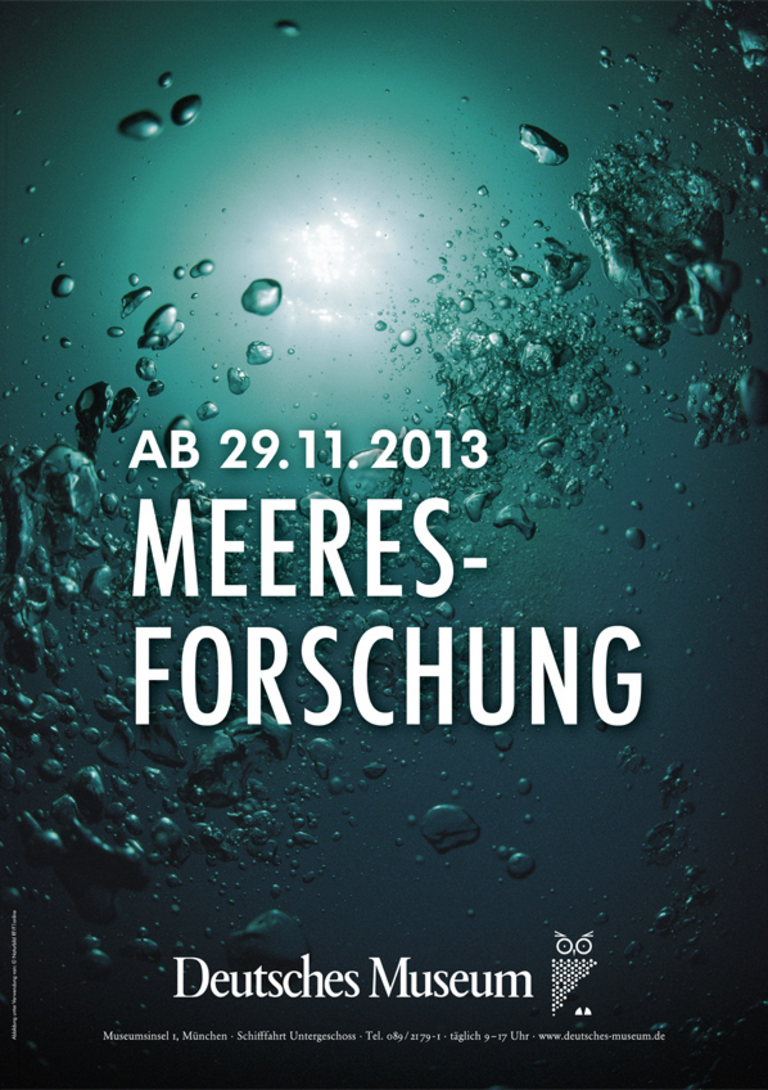Marine Research at Deutsches Museum
GEOMAR supports new permanent exhibition with numerous exhibits
Among the impressive exhibits are models of deep sea vehicles that are currently in use at German research centers. This includes a full-scale model of the autonomous underwater vehicle ABYSS of GEOMAR Helmholtz Centre for Ocean Research Kiel. The original is in use worldwide to explore the seabed and measure geological structures in very high resolution in up to 6000 meters water depth. Germany’s only manned research submersible JAGO is also represented as a model.
During the opening ceremony of the exhibition, the director of Deutsches Museum, Professor Wolfgang M. Heckl, thanked GEOMAR and MARUM, the Bremen Research Center for Marine Environmental Sciences, for their support in the implementation of the project. "We could not have done it without your help," he stressed.
GEOMAR Director Professor Peter Herzig in turn thanked the Deutsches Museum for the opportunity to show current topics of ocean research in one of Germany's most famous and prestigious technology museums. "The oceans cover about two thirds of the earth's surface, but we still know very little about them. With their potential for raw materials, the important interactions with the climate and the threats of marine natural hazards, the oceans play a fundamental role for all of mankind," Herzig said.
Professor Martin Visbeck, oceanographer and spokesman of the Kiel Excellence Cluster "The Future Ocean", explained in his lecture the importance of ocean currents for the climate and showed how modern technology helps scientists to explore the realm of the abyssal oceans.
As of today, the exhibition is open for everyone during a visit at Deutsches Museum.
Contact:
Dr. Gerd Hoffmann-Wieck (Communication and Media), Tel.: 0431-600-2555, ghoffmann-wieck(at)geomar.de
![[Translate to English:] GEOMAR Direktor Prof. Dr. Peter Herzig erläutert Besuchern Exponate in der neuen Dauerausstellung zur Meeresforschung. Foto: GEOMAR. GEOMAR director Prof. Dr. Peter Herzig explains to visitors the specifics in the new permanent exhibition on marine research. Photo: GEOMAR.](/fileadmin/_processed_/d/2/csm_DSC00262_9f9f469c23.jpg)




